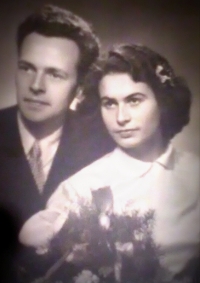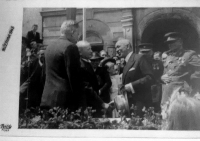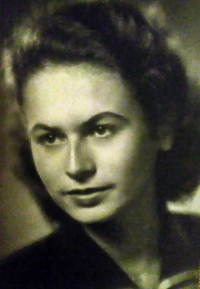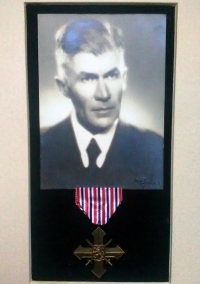It is important to remain honest so one would never have be sorry about having done the wrong thing
Download image
Radka Křivánková, née Machovcová, was born on 29 April 1932 in Písek as the second child into the Machovec family. Her father was a professor at the local business academy and her mother worked as a bank clerk. Both of her parents were members of the Czechoslovak National Socialist Party, were active in the Sokol movement and members of the Czechoslovak Protestant Church. During WW II her father collaborated with the resistance group Obrana národa. He was arrested twice; firstly shortly after German invasion in 1939 and for the second time on June 29, 1942. The very next day, he was executed in the Tábor barracks. An uncle, the brother of Radka’s mother, then took care of the family with help from members of the Czechoslovak Protestant Church. Radka recalls the liberation of Písek, which was located on the demarcation line between the Soviet and US occupation zones. In May 1945, Radka’s mother was a member of the revolutionary national committee in Písek. After the war, she became close to the National Socialist Party MP Milada Horáková who was later executed in a communist show trial. Radka graduated from business academy in Písek and married Libor Křivánek, a historian and ethnologist at the Prácheň museum. Together, they renewed and led the Esperanto club La Ponto. At times of communist normalization, they found ways to establish contacts abroad and published locally unavailable literature. Along with the death of her father, she has lived through other personal tragedies. Radka established the Milada Horáková Club, took active part in the November 1989 revolution events in Písek and later served as Civic Forum representative in the municipal assembly. She lived in Písek with her daughter while being widowed for over 35 years. She was a member of the local Association of Freedom Fighters.



